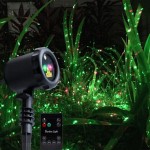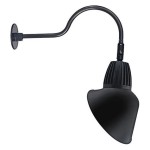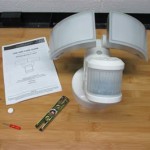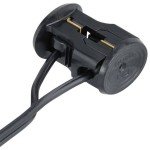Outdoor Portrait Lighting Setup
Outdoor portrait photography offers a wealth of natural light and picturesque backgrounds, but mastering the nuances of outdoor lighting can be a challenge. Effective lighting is paramount for capturing stunning portraits, and a well-planned setup can make all the difference. This article will delve into the essential elements of outdoor portrait lighting, providing insights into various techniques and considerations for optimizing your shots.
Understanding Natural Light
Natural light is the foundation of outdoor portrait photography. It's dynamic, constantly changing with the time of day, weather conditions, and the position of the sun. Understanding the characteristics of natural light is crucial for achieving the desired effect in your portraits.
Golden Hour: This period shortly after sunrise and before sunset is characterized by warm, soft light, ideal for creating a romantic or ethereal feel. The low angle of the sun casts long shadows, adding depth and dimension to your compositions.
Blue Hour: Occurring shortly before sunrise and after sunset, this time features cool, bluish tones that highlight the atmosphere and create a serene ambiance. It's often favored for moody portraits.
Overcast Skies: Overcast days provide diffused, even lighting, minimizing harsh shadows and offering a soft, flattering illumination for portraits.
Sunny Days: Bright, sunny days can create strong contrasts and deep shadows. While challenging, they offer opportunities for dramatic and energetic lighting, particularly when using fill flash or reflectors.
Essential Gear for Outdoor Portrait Lighting
While natural light is the primary source, additional tools can enhance your control over lighting and create desired effects. Here are some essential gear items for outdoor portrait lighting:
Reflectors: Reflectors bounce existing light back onto the subject, filling in shadows and softening harsh light. They come in various sizes and finishes, ranging from silver (for a brighter reflection) to gold (for a warmer tone).
Diffusers: Diffusers soften and disperse light, creating a more gentle and flattering illumination. They can be handheld or mounted on a stand, depending on the scenario.
Flash: While not always necessary, a flash can add a burst of light to illuminate your subject in low light conditions or open up shadows on sunny days. External flashes offer greater flexibility and power than built-in flash units.
Techniques for Controlling Outdoor Light
Beyond understanding natural light, mastering lighting control is essential for creating impactful portraits. Here are some techniques to enhance your outdoor portrait lighting:
Using Natural Light
Golden and Blue Hour: Leverage the soft, directional light of the golden and blue hour to create mood and dimension in your portraits. Position your subject with their back to the sun to achieve rim lighting or backlight, adding depth to their form.
Overcast Skies: Embrace diffused lighting under overcast skies for flattering portraits. The even light minimizes shadows and creates a soft, natural look. Position your subject in open areas, where the light is consistent.
Sunny Days: Utilize the direction and intensity of sunlight on sunny days to create striking portraits. Utilize a reflector to balance the light, fill in shadows, and soften the light on your subject. Experiment with different angles and distances to create dramatic effects.
Working with Reflectors and Diffusers
Reflectors: Use reflectors to bounce light back onto your subject, especially on sunny days. Position the reflector opposite the sun to fill in shadows on the face and body. Experiment with different reflector finishes to achieve different tones.
Diffusers: Diffusers soften harsh light and create a more gentle illumination. Use them to diffuse direct sunlight or to create a soft, even light source when shooting in open shade.
Using Flash
Fill Flash: Fill flash can be used on sunny days to balance the lighting and reduce harsh shadows. Set your flash to a low power setting and use it as a secondary light source to create soft, even illumination on your subject, without overpowering the natural light.
Flash as the Main Light Source: In low light conditions, such as during the blue hour or when shooting indoors with natural light, flash can be used as the primary light source. Experiment with different angles and distances to create the desired effect.
Mastering outdoor portrait lighting requires a combination of understanding natural light, utilizing essential gear, and practicing various techniques. Experimenting and observing the effects of different lighting conditions will help you refine your skills and create stunning portraits that capture your subject's essence.

Westcott University Portrait Shoot Using An Apollo And Stripbanks

How To Mix Ambient Light And Fill Flash For Outdoor Portraits

Applying The 3 Light Studio Setup To Outdoor Portraits

8 Invaluable Tools For Outdoor Photographers On A Sunny Day B H Explora

Outdoor Flash Photography Tips For Natural Or Dramatic Portraits
Indoor Outdoor Lighting Setups Simple Diagrams For Learning Photography

The Best Lighting For Outdoor Photography Focus

11 Outdoor Portrait Photography Tips For Easy Shots

Three One Light Portraits On Location

Allison Shelby Lighting Work Setup Dramatic Photography Photo Light
Related Posts







